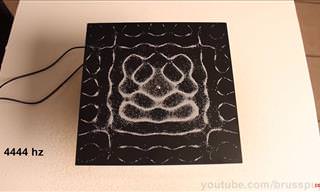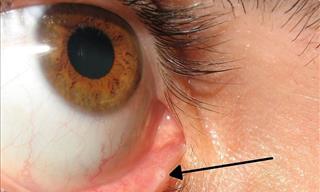
Back in 2014, a team of researchers at the University of Leeds found out that jet air dryers, contrary to being sanitary, are actually fantastic at spewing bacteria all over public restrooms, increasing the likelihood that you’ll walk out of them awash in other people’s germs. Lovely.
The lab-based experiments replicated a public washroom and found that jet air dryers introduced 27 times more bacteria into the air than paper towels did. What’s more is that these microbes circulated in the air for 15 minutes afterward.
The researchers have now come out with even more evidence against hand dryers. The only difference is that this time, they conducted their experiments in the real world. They set out to examine how hand drying methods affected bacterial spreads in hospital bathrooms due to the many serious and antibiotic-resistant infections that circulate in clinical settings.
Hospitals in Leeds, UK, Paris, France, and Udine, Italy were used for the investigations, which were conducted over a 12-week period. Two restrooms used by patients, staff, and visitors in each hospital were selected, and each was set up to offer only a jet dryer or paper towels. Samples from the restrooms were taken every day for four weeks, then there was a two-week pause in the experiment before the drying methods were alternated. The whole process was then repeated for the third time.

In their findings, the researchers saw that the total amount of bacteria both in the air and on surfaces was far higher in restrooms where jet air dryers were being used. Even more disturbingly, UK restrooms were found to have three times the amount of Staphylococcus aureus bacterium than in the other hospitals tested during the period when jet air dryers were in use.
Bacterial species that are both penicillin- and cephalosporin-resistant were also found to be present in significantly higher quantities when jet air dryers were being used. “Consequently, we believe that electric hand dryers are not suited to clinical settings, and, as such, existing (e.g. NHS) infection control building guidance needs to be amended and strengthened,” said the lead researcher.
“The problem starts because some people do not wash their hands properly,” the lead researcher added. “In effect, the dryer creates an aerosol that contaminates the toilet room, including the dryer itself and potentially the sinks, floor, and other surfaces, depending on the dryer design and where it is sited.
“However, paper towels absorb the water and microbes left on the hands and if they are disposed of properly, there is less potential for cross-contamination.”
BONUS - Check out this Sky News report referencing this study:

New Research Reveals a Link Between Bacteria & Alzheimer's
Groundbreaking new research has found a connection between Alzheimer's disease and certain types of bacteria in the brain. Learn more here.
 15:39
15:39
9 Myths About Mushrooms BUSTED For Good
Can we eat mushrooms raw or must we cook them first? Do they all have medicinal properties? And how can they help with cancer?

Can You Really Get Food Poisoning From a Humble Tea Towel?
If you've seen some alarmist reporting regarding tea towels and food poisoning recently, there's no need to worry. Here's more information on the study.

Is it REALLY the Coffee that Wakes Us Up in the Morning?
A recent study has revealed that the coffee you drink may just be a placebo...

Does Alcohol Decrease or Increase Physical Pain?
Does alcohol decrease physical pain or does it make us feel it even stronger?

The Habit of Nail Biting Could Have Many More Consequences
Nail-biting is more than just a gross habit, it can also be extremely bad for your mental and physical health in a number of ways.

These Wacky Inventions of the Past Appear Odd to Us Today!
These vintage tech inventions may look very interesting or even incredible, but their practicality today is questionable...

Scientists Develop 'Flying Dragon' Robot to Fight Fires
Scientists in Japan have created a water-spitting 'flying dragon' robot to fight fires.
 2:52
2:52
New Robots: This Robot Uses Both Wheels AND Legs
This robot can get just about anywhere in little time because it uses both wheels and legs to get over most hurdles.
 6:31
6:31
The Psychology Behind Why Some People Are Habitually Late
Now we finally know why some people are habitually late.

16 Surprising Things I Never Knew About Sleeping!
Who knew there was so much we don't know about our most popular activity! Here are 16 facts you may not have known about your sleep.
 9:34
9:34
Was Roman Concrete Really Superior to Our Own?
How did Ancient Romans make such durable concrete that it still lasts today?

Incredible New Bionic Arm Fuses With Woman's Nerves
Karin's bionic hand is real sci fi, making her one of the first true cyborgs.
 8:10
8:10
Taller Doesn't Mean Bigger - the True Size of Skyscrapers
If you were to compare skyscrapers by area rather than height, which skyscraper would end up on top?

These 11 Brain Facts Are Enough to Boggle Your Mind
When you consider the sheer complexity of the human brain, it's difficult to wrap your head around it. Learn these 11 fascinating facts about the human brain.
 3:39
3:39
Magic is Only A Vibration Away With This Great Experiment
All it takes is some sand, a metal plate and carefully toned vibrations from a speaker to create stunning and complex patterns. This video shows you the amazing results!
 54:17
54:17
Science Philosophy: What is the TRUE Nature of Time?
Join us as we journey through theories, discussions, and insights that challenge our perceptions and broaden our understanding of time itself.

These Engineering Failures Ended In Real Catastrophes
These are 10 of the worst engineering failures in history. These accidents had horrific results, and we must learn from them to never ever repeat them.

Welcome to the Fastest Maze-Solving Competition Ever Made...
Welcome to Micromouse, a competition for the quick of eyes and the quick of minds. This is the oldest robotics race.

Science Breakthrough: An Immunization Against Skin Cancer?
This scientific breakthrough offers hope for those who are struggling with skin cancer. You are now invited to discover more about this revolutionary vaccine.

17 Incredible Eye Facts You Have To See To Believe
They say the eyes are the window to the soul, and they also happen to be our windows to the world. Here are 17 insanely fascinating facts about eyes.

Ponder Life's Big Questions with a Truly Brilliant Mind
Dr. Michio Kaku is known around the world for his brain power and ability to explain complex concepts with effortless ease. Here are his thoughts.
 15:30
15:30
Experts Are Still Baffled by These Ancient Artifacts
These mysterious relics have left experts puzzled.

New Study: Are Dogs Even More Intelligent than We Thought?
New study sheds more light on canine intelligence, making some fascinating discoveries.
 56:12
56:12
What's the Largest Thing in the Universe?
In this video, we look into some of the mightiest structures in the known universe.
 14:49
14:49
This Man Built an Automatic Train System for Trash Cans!
Wouldn’t it be cool if a robot picked up and moved our garbage out for pickup with the push of a button?
 9:31
9:31
The Channel Tunnel - The 7th Wonder of the Modern World!
The construction of the Channel Tunnel is said to be an impossible feat!

7 Little-Known Body Parts We Never Knew About
Here's a look at some of the weird and little-known body parts that you didn’t know you had.

Scientists Develop Wrap That Determines if Food is Spoiled
Scientists at MIT have developed a biodegradable plastic-like wrap that changes color when food goes bad. Find out more…

6 Signs That Someone is Listening on Your Cellphone Calls!
With technology advancing all the time, there is the ever-increasing chance of our phones being tapped. Here are 6 signs that your phone could be tapped.

These 18 Photos Capture the Universe Like Never Before!
See the universe in a new light with these astonishing photos.

The Facts You Didn't Know About the Human Body...
Discover 120 fascinating and surprising facts about your body you may not have known. Going over most of the body parts, you will learn so much you never knew about the body we all use.
 3:50
3:50
Do You Know What Alzheimer's Really Is?
This video will shed light on the different stages of this complex and incredibly destructive disease.
 5:03
5:03
WHY is Sugar So Devilishy Addictive?
There seems to be a fascinating scientific explanation for why our will power is weak when it comes to sugar!
 13:38
13:38
24 Smart Storage Inventions You Didn't Know You Needed
These super useful inventions are designed to make you help space!

6 Remarkable Yet Overlooked Minds That Shaped Our World
These underappreciated geniuses deserve more recognition.

20 Fascinating Things That Can Be Found in the World
These pictures show us 20 fascinating and absolutely astounding things, from a single mountain with 1000 waterfalls to a giant ant!

Ancient Skull Found In China Unlike Any Human Ever Seen
A newly-discovered skull in China had baffled scientists. This could mean we might have discovered an entirely new species of humans.

16 Interesting Things We Bet You've Never Seen Before
Once we have finished school and learned all the necessary skills at work, it may seem that no further studying is necessary. 16 interesting photos you wish you had seen in textbooks at school.
 3:16
3:16
You Wouldn't Believe How Far Technology Has Come
Take a look at the advancements of technology in this video. Impressive.

8 Jaw-Dropping Black Hole Facts to Warp Your Mind
These black hole facts will bend your mind!

9 Recent Groundbreaking Discoveries You Need to Know About
These recent breakthroughs will revolutionize our world.
 4:19
4:19
The First Robot Ever Made Was Created 250 Years Ago...
This automaton is pure genius, especially when you consider it was built 250 years ago...

The Difference Between Mined and Lab-Created Diamonds
If you're seriously considering buying a loved one a diamond, then we highly recommend that you read this informative guide first!

I Never Knew These Stunning Facts About Our Universe
If you thought you understood the universe, you'll be completely floored by this insane facts.

8 Fascinating Heartbeat Facts You Never Knew Before
These heartbeat facts will leave you astounded.

2023 in Science: Biggest Discoveries You Missed!
Let’s take a look at the most amazing scientific discoveries that made news this year.


